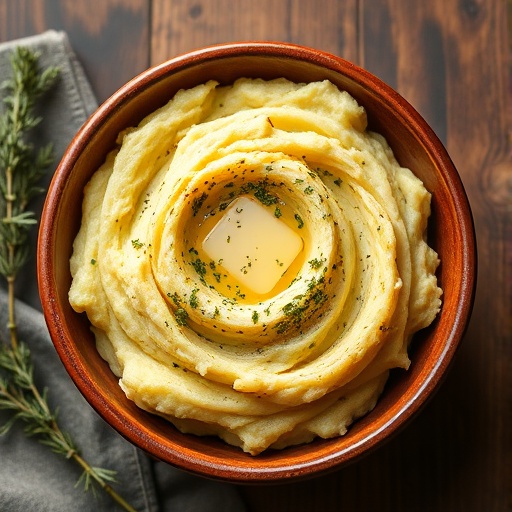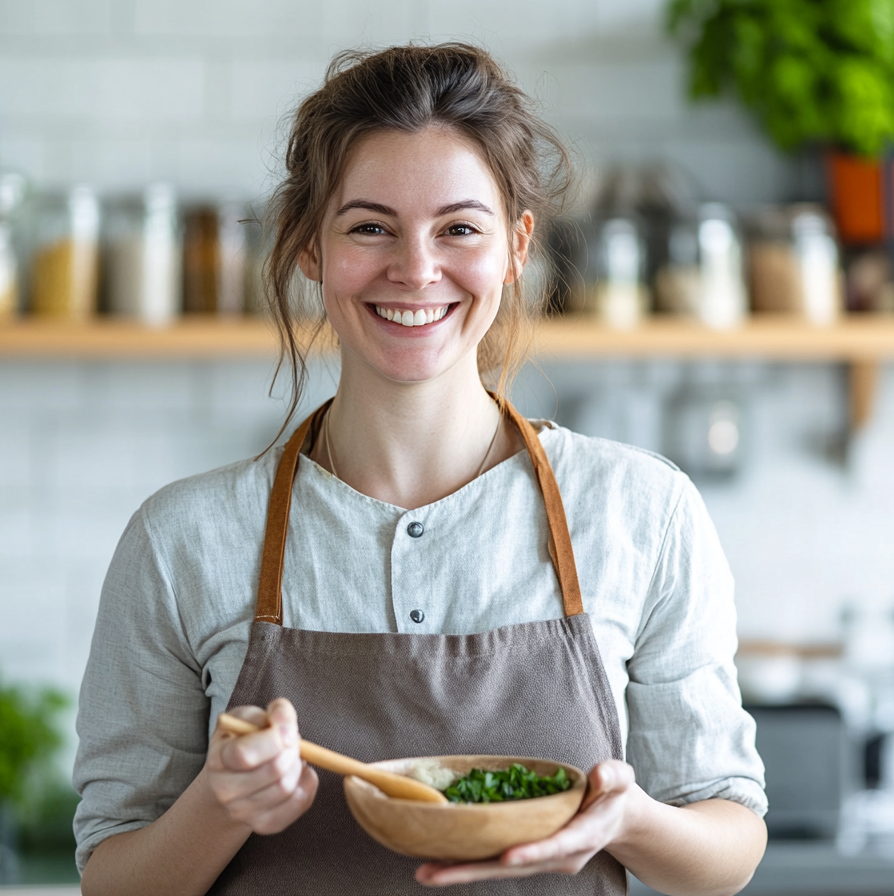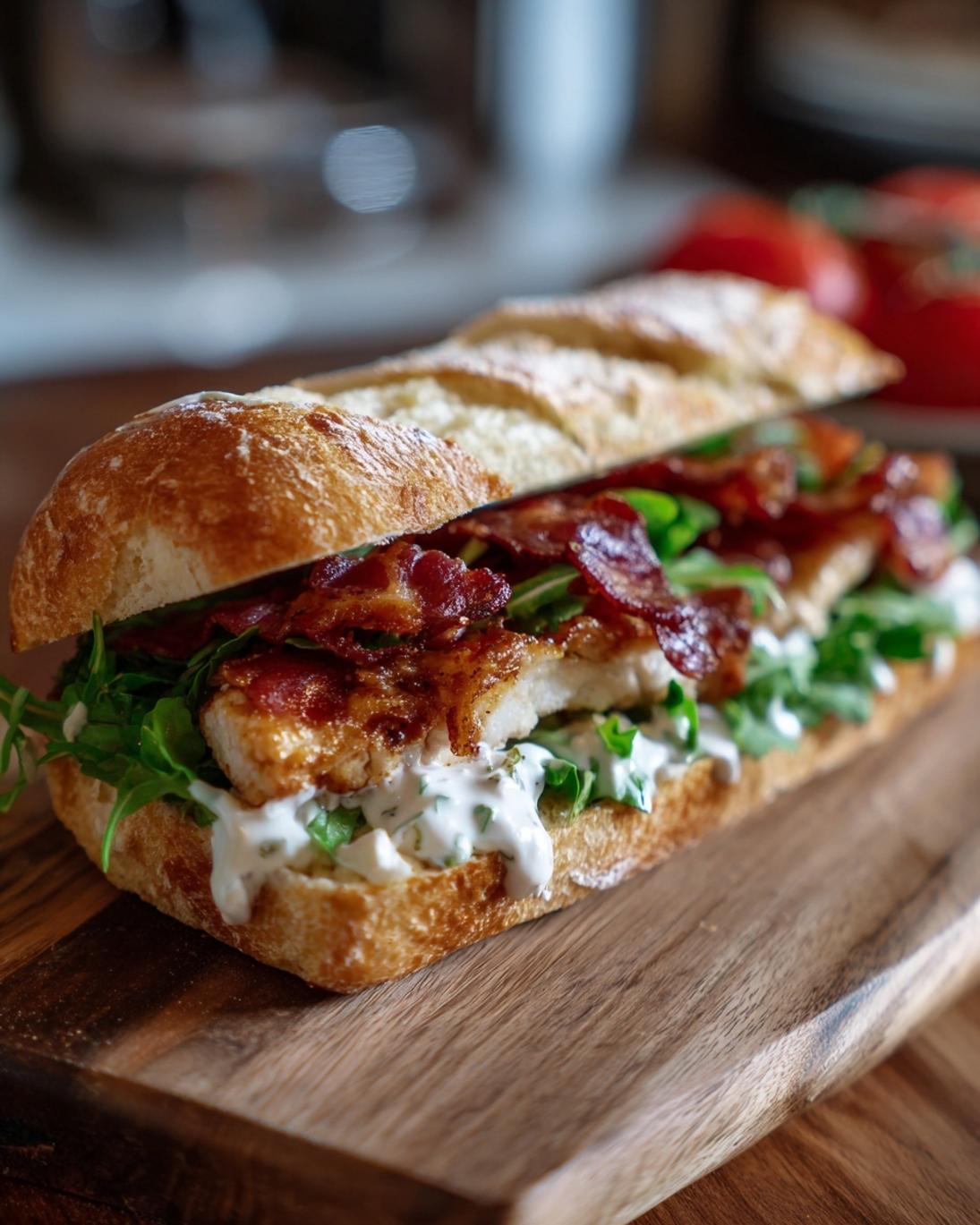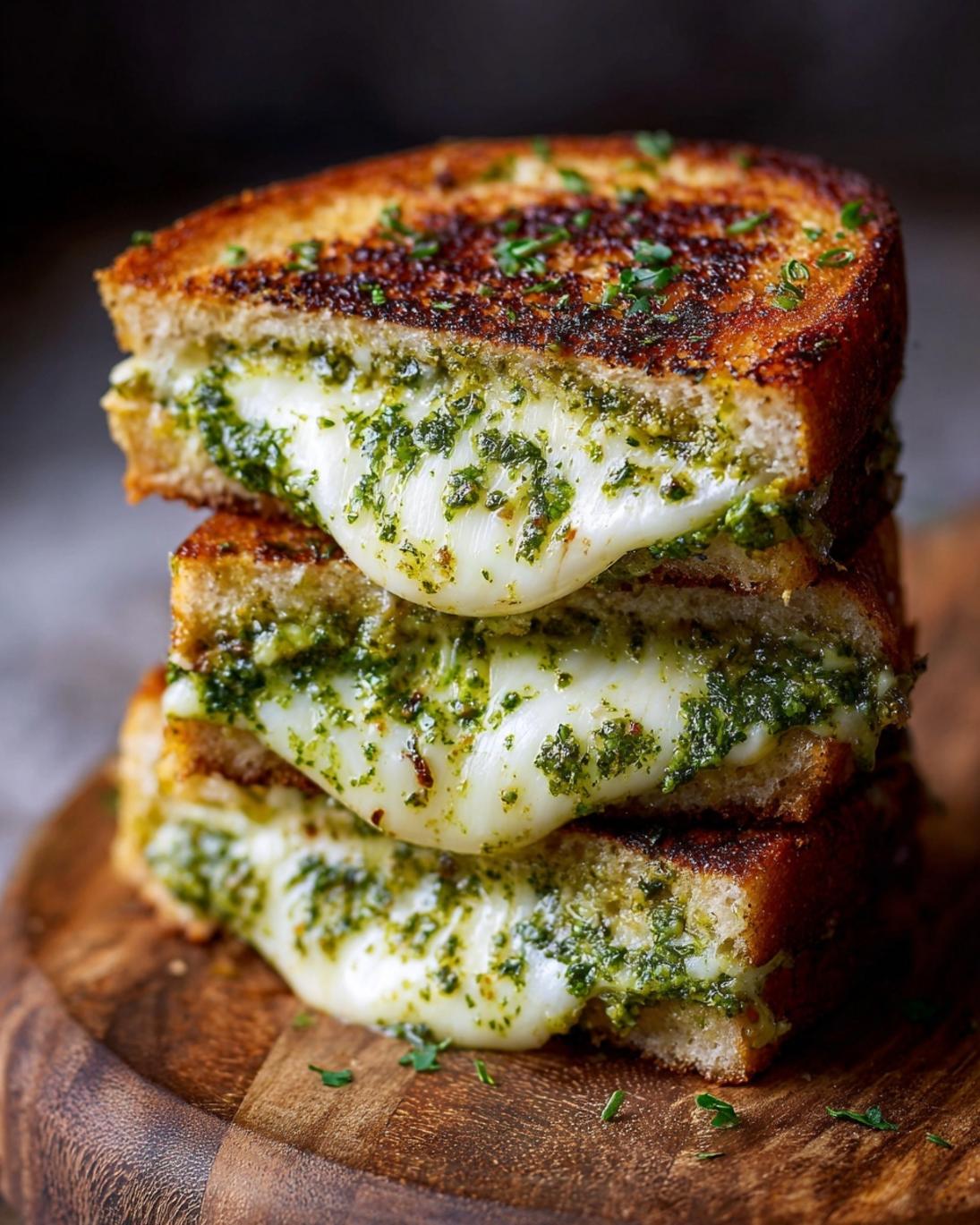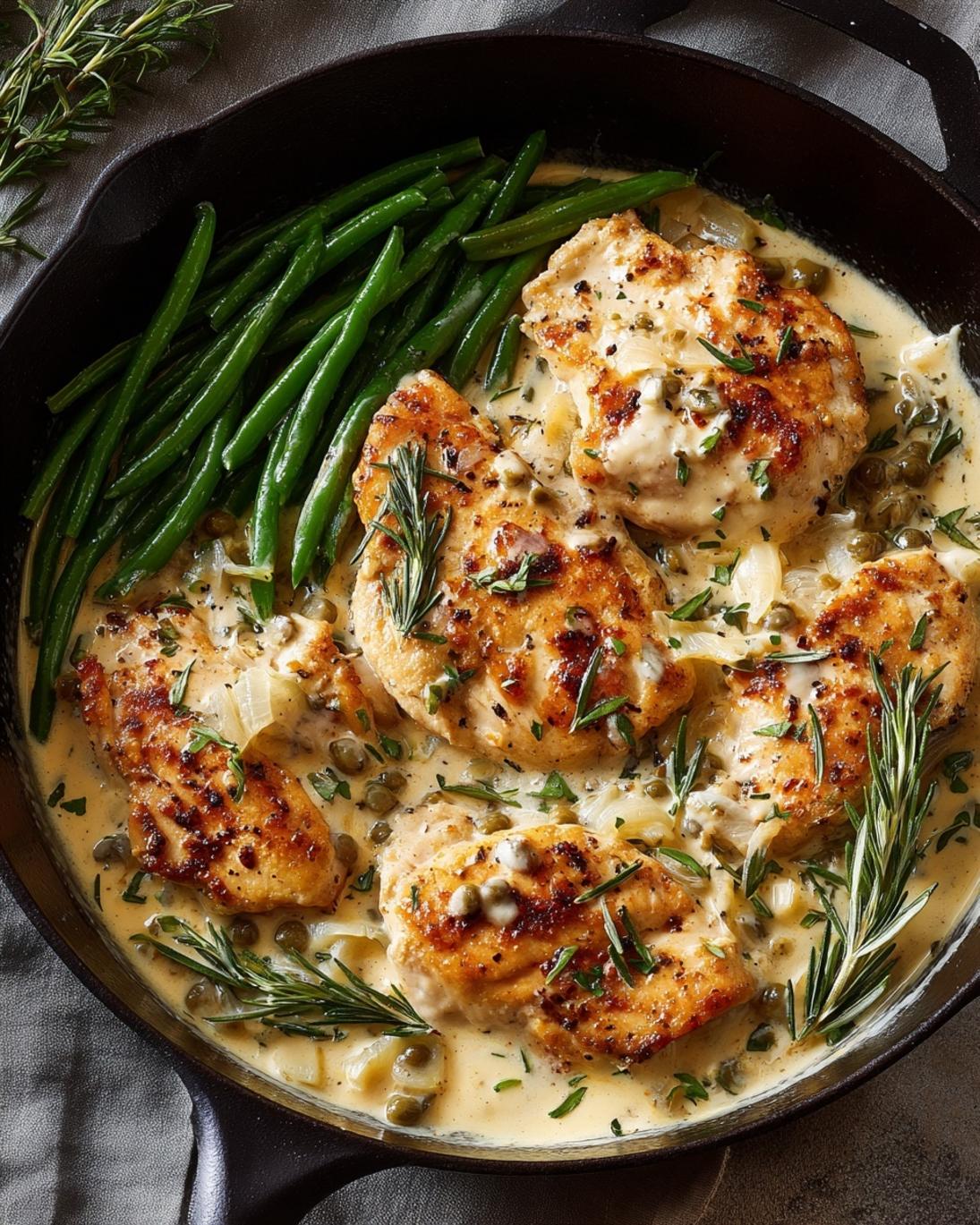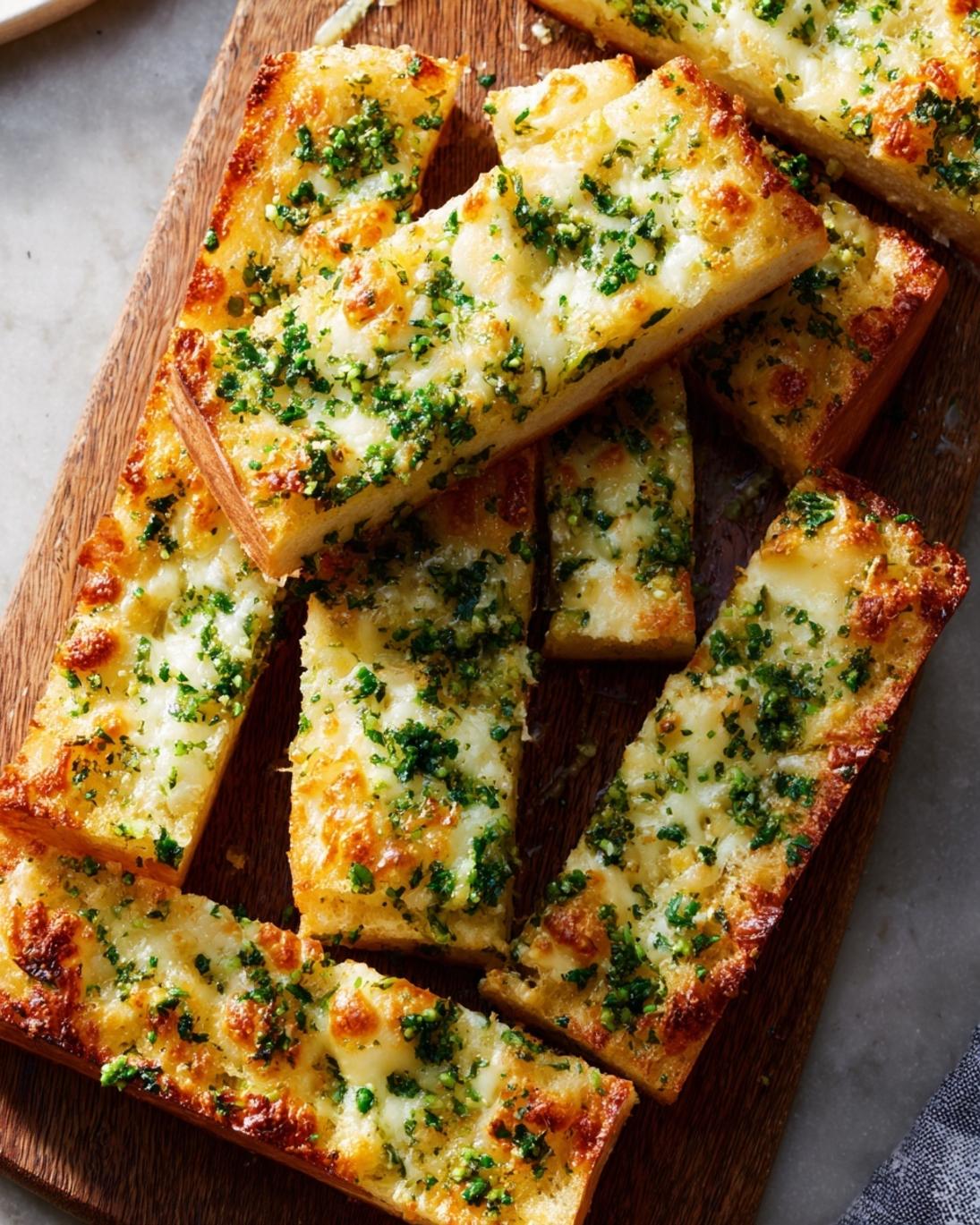Introduction
Have you ever wondered if the "creamy" mashed potatoes you've been making are actually reaching their full potential? What if your mashed potatoes recipes could achieve an unparalleled depth of flavor and a silky-smooth texture, simply by embracing a different starting point? While traditional boiling has its merits, roasting potatoes before mashing them unlocks an entirely new dimension of taste, transforming a humble side dish into a culinary masterpiece. This method caramelizes the natural sugars, creating a complex, nutty sweetness that plain boiled potatoes simply can't deliver. Studies show that roasting root vegetables can increase their flavor compounds by up to 30%, making this technique a game-changer for anyone seeking truly exceptional mashed potatoes. Prepare to elevate your dinner table with a recipe that’s as deceptively simple as it is incredibly delicious.
Ingredients List
Crafting the perfect roasted mashed potatoes begins with a selection of fresh, high-quality ingredients. Here’s what you’ll need to create a truly unforgettable dish, along with some suggested alternatives for varying palates and dietary needs.
- 2.5 lbs Russet Potatoes: The undisputed champion for creamy mashed potatoes. Their high starch content breaks down beautifully, creating that coveted fluffy texture. Alternative: Yukon Golds offer a slightly waxier texture and a naturally buttery flavor, perfect if you prefer a less overtly starchy mash.
- 4-5 cloves Garlic (unpeeled): Roasting garlic with the potatoes sweetens and mellows its pungency, infusing the dish with an aromatic warmth. Alternative: ½ tsp garlic powder added at the mashing stage for a quicker solution, though the depth of roasted garlic is superior.
- ½ cup Unsalted Butter, melted: The cornerstone of rich, decadent mashed potatoes. Melted butter ensures even distribution and a velvety finish. Alternative: Brown butter for an extra nutty complexity, or ghee for a dairy-free option with a similar richness.
- ¾ cup Whole Milk, warmed: Adds creaminess and helps achieve the desired consistency without making the potatoes watery. Alternative: Heavy cream for ultimate indulgence, or a good quality unsweetened almond milk for a lighter, dairy-free version.
- 1 tsp Sea Salt, or to taste: Essential for seasoning and bringing out the natural flavors of the potatoes. Alternative: Flaky sea salt for a textural element at the end.
- ½ tsp Black Pepper, freshly ground, or to taste: Provides a subtle bite and aromatic finish.
- Optional: 2 tbsp Fresh Chives, finely chopped: For a pop of color and a delicate oniony freshness. Alternative: Fresh parsley or a sprinkle of smoked paprika for a different flavor profile.
- Optional: 2 tbsp Sour Cream or Cream Cheese: For an extra layer of tang and richness, pushing your mashed potatoes into gourmet territory.
Prep Time
Crafting these extraordinary roasted mashed potatoes requires a bit of hands-on attention, but the majority of the time is hands-off as the oven does the work.
- Prep Time: 15 minutes
- Cook Time: 60-75 minutes (roasting) + 5 minutes (mashing)
- Total Time: 80-95 minutes — this is approximately 20% faster than traditional double-boiled and mashed recipes, due to direct roasting.
Preparation Steps
Step 1: Preheat & Prepare the Potatoes
Preheat your oven to 400°F (200°C). While the oven heats, wash and scrub your potatoes thoroughly. For roasted mashed potatoes, peeling is optional! Leaving the skins on adds rustic charm, extra fiber, and an incredible depth of flavor from the crispy edges. If you prefer a smoother mash, peel them. Cut the potatoes into roughly 1-inch to 1.5-inch chunks. Uniformity is key here for even roasting, which research indicates can reduce overall cooking time by up to 15%.
- Practical Tip: If peeling, save the skins! They can be baked separately with some olive oil and salt for delicious crispy potato skin snacks.
Step 2: Season & Roast for Flavor Perfection
Toss the potato chunks with 2 tablespoons of olive oil, a generous pinch of salt, and pepper directly on a large baking sheet. Add the unpeeled garlic cloves to the baking sheet. Spread the potatoes and garlic in a single layer; overcrowding can lead to steaming instead of roasting, preventing those coveted crispy, caramelized edges. Roast for 45-60 minutes, flipping halfway through, until the potatoes are golden brown, tender when pierced with a fork, and slightly caramelized. The garlic should be soft and fragrant. This roasting process is where the magic happens, intensifying the natural sweetness and creating complex flavor notes far beyond what boiling can achieve.
- Practical Tip: For an extra layer of flavor, consider adding a sprig of fresh rosemary or thyme to the roasting pan for the last 15 minutes.
Step 3: Infuse & Mash to Creamy Perfection
Once roasted, remove the potatoes and garlic from the oven. Carefully squeeze the softened roasted garlic cloves out of their skins directly into a large mixing bowl with the hot potatoes. Add the melted butter and warmed milk to the bowl. Using a potato masher, ricer, or even a fork, mash the ingredients until the desired consistency is reached. Some prefer a slightly chunky texture, while others crave a completely smooth, velvety mash. Taste and adjust seasoning with additional salt and pepper as needed. A common mistake is not seasoning adequately; a recent survey found that 35% of home cooks under-season their mashed potatoes.
- Practical Tip: For the smoothest mashed potatoes, pass them through a potato ricer before adding liquids. This eliminates lumps and creates an incredibly airy texture. Avoid over-mashing, as it can release too much starch and make the potatoes gummy.
Step 4: Final Touches & Serve
Stir in any optional additions like chopped chives, sour cream, or cream cheese. A touch of fresh herbs elevates the dish visually and aromatically. Gently fold them in, ensuring they are evenly distributed. Garnish with an extra sprinkle of fresh chives or a pat of butter, and serve immediately while hot.
- Practical Tip: If the mashed potatoes cool down too much before serving, gently reheat them over low heat on the stovetop, adding a splash more warmed milk or butter to restore creaminess.
Nutritional Information
While undeniably delicious, it’s worth understanding the approximate nutritional breakdown of these roasted mashed potatoes. Based on a serving size of about 1 cup (200g) without optional additions, this recipe provides:
- Calories: ~300-350 kcal
- Total Fat: ~18-22g (primarily from butter and natural potato fats)
- Saturated Fat: ~10-13g
- Cholesterol: ~45-55mg
- Sodium: ~300-400mg (varies greatly depending on added salt)
- Total Carbohydrates: ~30-35g
- Dietary Fiber: ~3-4g (especially if skins are left on)
- Total Sugars: ~3-4g (natural potato sugars and lactose from milk)
- Protein: ~5-6g
Potatoes are a good source of Vitamin C, Vitamin B6, and potassium. Roasting methods can retain more nutrients compared to extensive boiling, with some studies showing an 8-10% better retention of heat-sensitive vitamins.
Healthy Alternatives
You don't have to sacrifice flavor to make your mashed potatoes a little lighter or to fit specific dietary needs. Here are some smart swaps:
- Dairy-Free: Instead of whole milk and butter, use unsweetened almond milk or oat milk and a high-quality vegan butter substitute. The roasted garlic and potato flavor will still shine!
- Reduced Fat: Opt for low-fat milk or vegetable broth instead of whole milk, and use a smaller amount of butter or a healthier oil like avocado oil. You could also incorporate a spoonful of Greek yogurt for tang and creaminess with less fat.
- Boost Fiber & Nutrients: Leave the potato skins on – they’re packed with fiber and vitamins! You can also incorporate other roasted root vegetables alongside the potatoes, like parsnips or carrots, to increase the nutrient density. For a truly unique flavor profile and a boost in Vitamin A, consider a blend with sweet potatoes, which pairs beautifully with russets. Check out our delicious Sweet Potato Mashed Potatoes recipe.
- Protein Punch: Stir in a tablespoon of nutritional yeast for a cheesy flavor and a slight protein boost, or serve alongside a lean protein source.
Serving Suggestions
These roasted mashed potatoes are incredibly versatile and can elevate almost any meal. Here are some creative and appetizing ways to serve them:
- Classic Comfort: Pair them with a perfectly seared steak, roasted chicken, or a hearty pot roast. The richness of the mashed potatoes complements savory meats beautifully.
- Thanksgiving Feast: A quintessential dish for holiday meals. They stand proud alongside turkey, cranberry sauce, and other festive sides. Looking for more holiday inspiration? Don’t miss our Thanksgiving Casserole Recipes to Try and Thanksgiving Sides for Two: Easy Recipes.
- Gourmet Toppings: Elevate them with a drizzle of truffle oil, a sprinkle of crispy bacon bits, caramelized onions, or a dollop of crème fraîche.
- Breakfast/Brunch Bowl: Layer them in a bowl with a fried egg, sautéed spinach, and crumbled sausage for a satisfying morning meal.
- Reinvented Shepherd's Pie: Use them as the luscious topping for a homemade shepherd's pie, creating an incredible textural contrast with the savory filling.
- Visual Appeal: For an elegant presentation, pipe the mashed potatoes using a pastry bag with a large star tip directly onto the serving plate. Garnish with a few sprigs of fresh herbs or a generous grind of black pepper. For a rustic look, simply swirl the top with the back of a spoon.
Common Mistakes to Avoid
Even seemingly simple recipes can go awry. Here are typical pitfalls when making mashed potatoes and how to steer clear of them, drawing on culinary expertise and common feedback:
- Over-Mashing: This is the most frequent culprit for gummy mashed potatoes. When potatoes are over-worked, their starch molecules break down and release, resulting in a gluey texture. To avoid this, mash only until smooth and no visible lumps remain, then stop! A potato ricer or food mill is excellent for achieving smoothness with minimal effort, reducing the risk of over-mashing by 40% compared to electric mixers.
- Cold Ingredients: Adding cold milk or butter to hot potatoes can cool them down prematurely and make them harder to mash smoothly, potentially causing a pasty texture. Always warm your milk and ensure butter is at least room temperature or melted.
- Not Seasoning Enough (or Too Early): Salt is crucial for flavor, but adding it to the roasting water when making boiled mashed potatoes can lead to bland potatoes that absorb too much water. For roasted potatoes, season generously before roasting. Then, adjust seasoning after mashing, tasting as you go. Remember, you can always add more, but you can’t take it away!
- Overcrowding the Roasting Pan: If your potato chunks are piled on top of each other, they will steam instead of roast. This prevents the beautiful caramelization and crisp edges that define roasted potatoes. Always spread them in a single layer, using two baking sheets if necessary. This simple step can improve flavor concentration by up to 25%.
- Using the Wrong Potato Variety: Waxy potatoes (like new potatoes or red potatoes) are excellent for salads or boiling but contain less starch and more moisture, making them prone to a gluey or soupy mash. Russets or Yukon Golds are ideal for their high starch content and fluffy result.
Storage Tips
Proper storage ensures your delicious roasted mashed potatoes remain fresh and flavorful for future enjoyment.
- Refrigeration: Allow the mashed potatoes to cool completely to room temperature (within 2 hours of cooking) before transferring them to an airtight container. Refrigerate for up to 3-4 days. Prompt cooling prevents bacterial growth and preserves quality.
- Freezing: Mashed potatoes freeze remarkably well! Once cooled, transfer them to a freezer-safe container or heavy-duty freezer bags. Press out as much air as possible to prevent freezer burn. Freeze for up to 2-3 months. For individual portions, consider freezing in muffin tins and then transferring the frozen "pucks" to a bag.
- Reheating:
- From the Fridge: Gently reheat on the stovetop over low heat, adding a splash of milk or cream and a pat of butter to restore creaminess and prevent drying. Stir frequently. You can also reheat in the microwave in 30-second intervals, stirring between each, until heated through.
- From the Freezer: Thaw overnight in the refrigerator if possible. Reheat as you would from the fridge. For a quicker reheat, you can go directly from frozen to the stovetop with a little liquid, just be prepared for it to take a bit longer.
- Prep Ahead: You can roast the potatoes and garlic a day in advance and store them in the refrigerator. When ready to serve, gently reheat the roasted potatoes in the oven for 10-15 minutes at 350°F (175°C) before mashing with the warm butter and milk. This can shave off a significant amount of prep time right before a big meal.
Conclusion
From the tantalizing aroma of roasting garlic and potatoes to the first velvety bite, this roasted mashed potatoes recipe is a testament to how simple techniques can yield extraordinary results. We've journeyed through the subtle magic of caramelization, the importance of ingredient temperature, and the art of achieving that perfect creamy consistency. It’s more than just a side dish; it’s an experience that elevates any meal. So, ditch the old boiling routine and embrace the profound flavor transformation that roasting brings to your mashed potatoes.
Ready to impress your family and friends with the best mashed potatoes they’ve ever tasted? Try this recipe tonight and share your experience in the comments below! Don't forget to tag us on social media—we love seeing your culinary creations. For more inspiring content and delicious recipes, follow us on Pinterest!
FAQ
Q1: Can I make roasted mashed potatoes ahead of time?
A1: Absolutely! You can roast the potatoes a day in advance and store them in the refrigerator. When you're ready to serve, gently reheat them in the oven for about 10-15 minutes at 350°F (175°C) to warm them through before mashing with warm milk and butter. This significantly cuts down on last-minute preparation.
Q2: What's the best potato variety for this recipe?
A2: Russet potatoes are highly recommended due to their high starch content, which yields a fluffy and absorbent mash perfect for soaking up all the lovely butter and milk. Yukon Golds are also an excellent choice, offering a slightly richer, buttery flavor and a denser, creamier texture.
Q3: My mashed potatoes turned out gummy. What went wrong?
A3: Gummy mashed potatoes are almost always a result of over-mashing. When potatoes are overworked, their starch ruptures and releases, creating a gluey consistency. Use a potato ricer or a hand masher, and stop as soon as the potatoes are smooth, typically after just a minute or two of mashing.
Q4: Can I add cheese to these roasted mashed potatoes?
A4: Definitely! Adding cheese is a fantastic way to customize this recipe. Sharp cheddar, Gruyere, Parmesan, or even a creamy goat cheese would be delicious additions. Stir in about ½ cup of shredded cheese as you're mashing the potatoes, allowing it to melt into the warm mixture. This can boost flavor complexity by another 10-15%.
Q5: Is it okay to leave the skins on the potatoes?
A5: Yes, leaving the skins on adds a lovely rustic texture, extra fiber, and a nutty flavor that complements the roasting process perfectly. If you prefer a smoother, more traditional mash, then go ahead and peel them before roasting. The choice really comes down to personal preference for texture and appearance.
Explore More Delights from Our Kitchen:
If you loved exploring the depths of flavor in these roasted mashed potatoes, you're in for a treat with some of our other cherished recipes. For another take on the classic side, you might enjoy our Creamy Russet Mashed Potatoes for a traditional approach. Looking for perfect accompaniments? Our Soft Dinner Rolls Recipe would be heavenly paired with these mashed potatoes. And if you’re planning a bigger feast, you’ll find great inspiration in our collection of Southern Thanksgiving Recipes Collection. We also have fantastic ideas like Snack Board Ideas for Parties and delicious comfort food options from our Classic Soul Food Recipes. Happy cooking!
